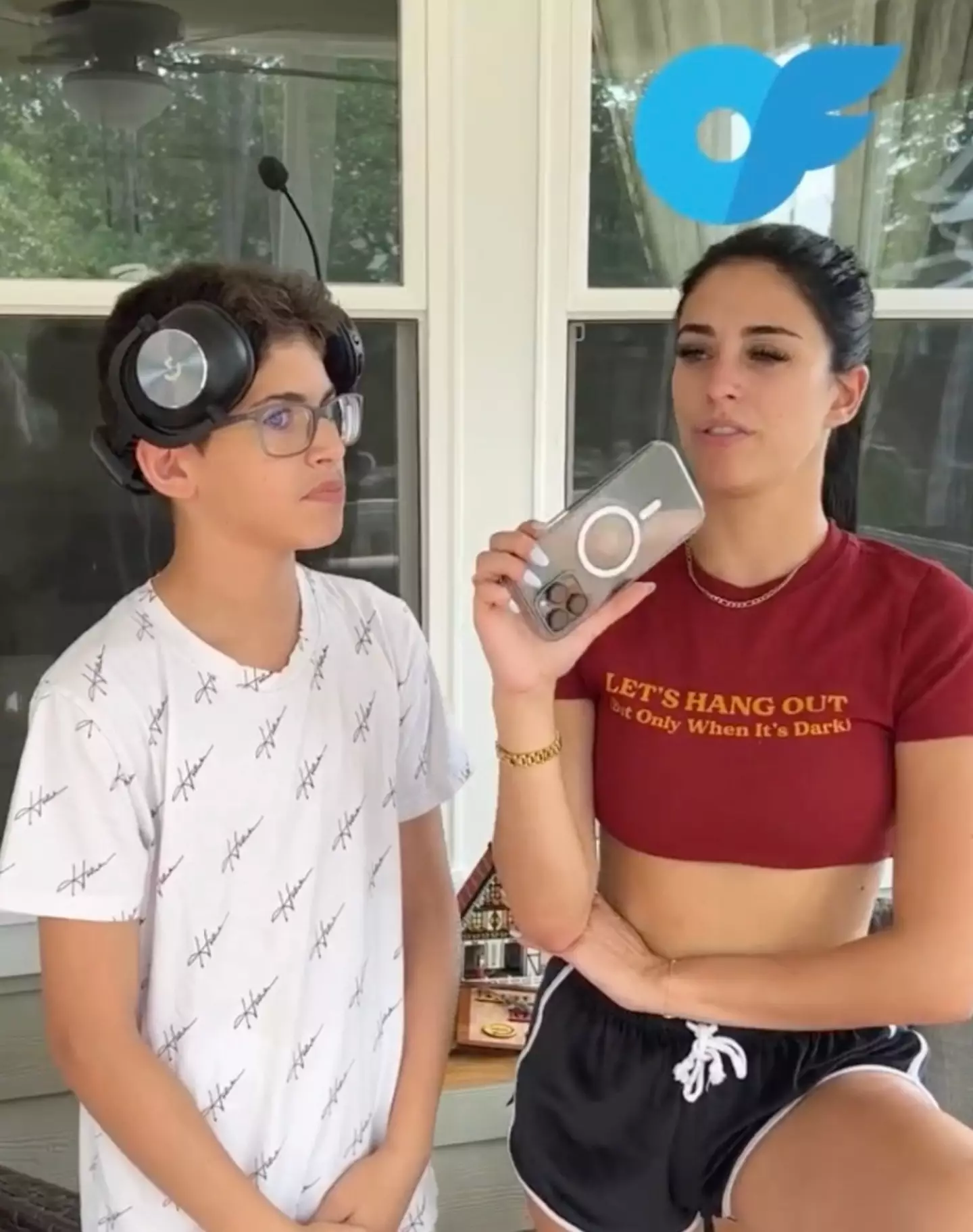Is the digital realm truly boundless, or are its perceived freedoms often overshadowed by the pervasive nature of online content and the complexities of its dissemination? The case of Camilla Araujo, a figure navigating the multifaceted landscape of online content creation, highlights the intricate interplay between personal agency, audience perception, and the often-murky ethical considerations that accompany it.
The online world, a sprawling ecosystem of interconnected platforms, has become a stage for a diverse range of individuals seeking to connect with audiences, build communities, and, in some cases, monetize their personal brand. This phenomenon, while offering unprecedented opportunities for self-expression and entrepreneurship, also presents a series of unique challenges. The accessibility of content, the potential for misinterpretation, and the constant scrutiny of public opinion create a complex environment for those who choose to share their lives and work online. Camilla Araujo, a name that frequently surfaces in discussions about online content, embodies this duality.
To provide a clearer understanding of the individual at the center of this discussion, here's a compilation of available information:
| Attribute | Details |
|---|---|
| Full Name | Camilla Araujo |
| Known For | Content Creation on OnlyFans, TikTok |
| Platform Presence | Active on OnlyFans, TikTok, and other social media platforms |
| Content Focus | Explicit content, personal interactions, and self-promotion |
| Other Platforms | Instagram: @oohgust, Twitter: @oohgust, Gaming channel: @ducktheaugust |
| YouTube Channel (Associated) | August the Duck |
| Reference | Information sourced from various online platforms and aggregators. Previous video |
The digital footprint of Camilla Araujo, as documented across various platforms, reveals a presence that is simultaneously visible and, at times, elusive. Her association with OnlyFans, a subscription-based platform known for its creator-driven content, places her within a specific segment of the online ecosystem. This platform's business model, which allows creators to directly monetize their content through subscriptions and pay-per-view interactions, has reshaped the dynamics of online content creation. This model empowers creators to directly engage with their audience, bypassing traditional media gatekeepers.
In the realm of online content, the distinction between personal expression and commercial enterprise is often blurred. For creators like Camilla Araujo, the creation and distribution of content become intertwined with their economic survival and professional aspirations. The success of a content creator often hinges on their ability to attract and retain an audience, to cultivate a sense of community, and to consistently deliver content that aligns with the expectations of their subscribers.
However, the pursuit of online visibility is not without its challenges. The pervasive nature of the internet means that content, once published, can be difficult to control. Videos and images, even those intended for a specific audience, can be shared and re-contextualized, leading to unintended consequences. The emergence of leaked content, a recurring issue in the digital age, adds another layer of complexity. The unauthorized distribution of private material can have a devastating impact on the individuals involved, causing emotional distress, reputational damage, and legal repercussions.
The term leaked has become a ubiquitous descriptor in the context of online content. It refers to the unauthorized release of private or sensitive material, often without the consent of the individual depicted. The motivations behind such leaks can range from malicious intent to simple recklessness. The consequences, however, are consistently severe. For the subject of a leak, it can lead to a violation of privacy, exposure to unwanted attention, and a sense of powerlessness.
The proliferation of sexually explicit content online has also brought to the forefront discussions about consent, exploitation, and the objectification of individuals. Platforms like OnlyFans, while offering a space for adult content creators, have also been criticized for potentially facilitating the exploitation of vulnerable individuals. The line between consensual content creation and non-consensual distribution can be difficult to navigate, and the legal and ethical implications of such actions are far-reaching.
The case of Camilla Araujo, as seen through the lens of various online discussions and reports, serves as a microcosm of these larger issues. The online presence of individuals involved in adult content creation often becomes a subject of intense scrutiny, with every aspect of their lives, both personal and professional, subject to public discussion. The constant stream of information, coupled with the potential for misinterpretation and malicious intent, creates an environment where individuals are often forced to navigate a complex landscape of ethical and legal considerations.
The rise of platforms like OnlyFans has also spurred a debate about the rights and responsibilities of content creators. The ability to control one's own narrative, to directly engage with an audience, and to monetize one's work is undoubtedly empowering. However, the potential for exploitation, the risk of privacy breaches, and the constant pressure to maintain relevance can take a toll on the mental and emotional well-being of content creators.
The case of Camilla Araujo, specifically referencing instances of leaked content, highlights the challenges associated with maintaining control over one's digital footprint. The ease with which content can be copied, shared, and re-contextualized underscores the importance of online safety and the need for robust legal frameworks to protect individuals from online harms. It is a reminder that the digital world, while offering unprecedented opportunities, also presents unique vulnerabilities.
Furthermore, the methods used by some creators to promote their content, as highlighted in the context of Araujo's online activity, can also raise ethical questions. The use of sensationalist tactics, the exploitation of personal relationships, and the potential for misleading representations are all factors that contribute to the complexities of the online content creation landscape.
The content created and distributed by individuals like Camilla Araujo, whether it be explicit or not, often becomes fodder for discussion and debate. The very nature of the internet means that information is constantly being shared, interpreted, and re-purposed. This dynamic can lead to a loss of control over one's personal narrative and can have far-reaching consequences.
The digital world is constantly evolving, and with it, the challenges and opportunities for content creators. The case of Camilla Araujo serves as a focal point for a broader discussion about the responsibilities of content creators, the ethical implications of content distribution, and the need for a more nuanced understanding of the complexities of the online world. It underscores the necessity of safeguarding privacy, promoting responsible online behavior, and protecting individuals from the potential harms of the digital age. The narratives surrounding her presence online encourage a critical examination of the interplay between individual agency, audience consumption, and the broader societal implications of the evolving digital landscape.
The discussion about Camilla Araujo and her online presence is not merely a singular instance, but rather a reflection of the broader challenges and opportunities associated with online content creation. It is a reminder that the digital world, while offering unprecedented avenues for self-expression and connection, also demands vigilance, ethical considerations, and a commitment to safeguarding the rights and well-being of all individuals involved.
The digital footprint of Camilla Araujo, the videos, the interactions, the leaked content, all contribute to a larger conversation about the nature of online identity, the power of the internet, and the responsibilities of individuals in the digital age. The case provides a lens through which to examine the complex interplay of consent, privacy, and the ever-evolving dynamics of the online world. The continued evolution of digital spaces will undoubtedly bring forth new challenges and opportunities. The discussions surrounding individuals such as Camilla Araujo will continue to shape our understanding of these complexities.



